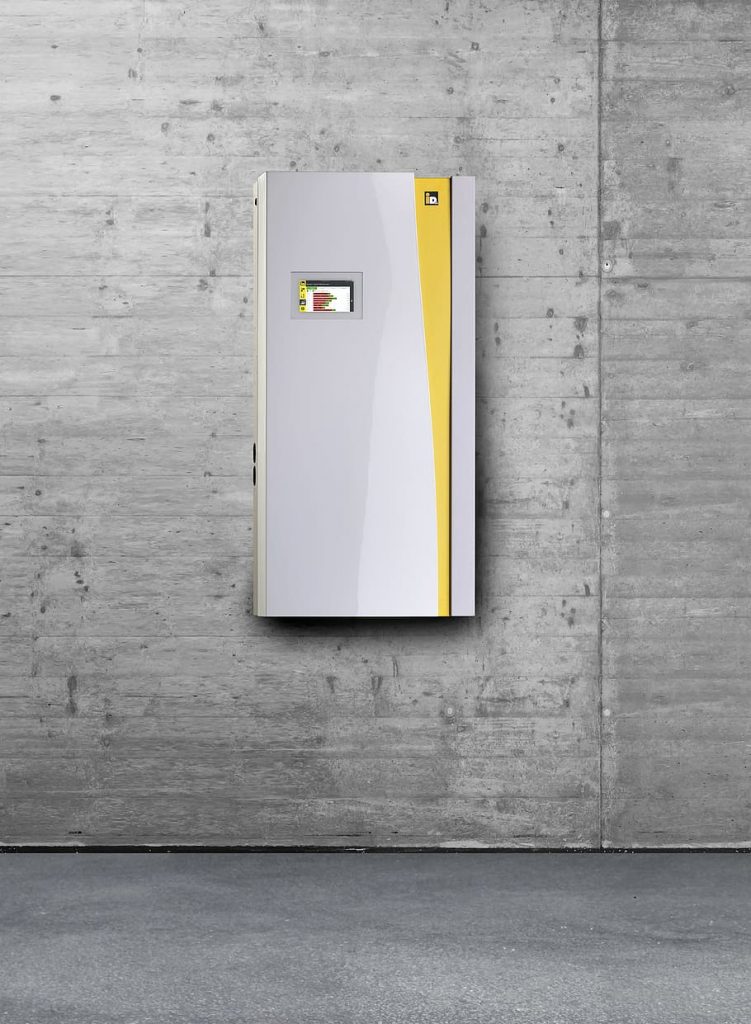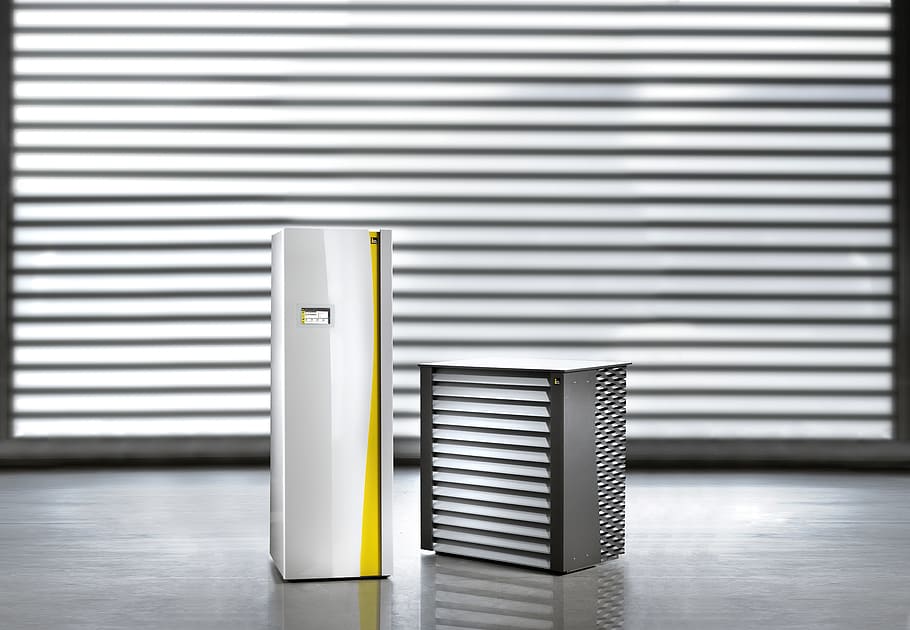Summary
– Which air-to-water heat pump to choose?
– Which water outlet temperature should I choose?
– Advantages of the air-to-water heat pump: simple and efficient
– Disadvantages of air-to-water heat pumps
The air-to-water heat pump is the most widespread with the air-to-air heat pump. A heat pump can draw its energy from water, soil or air. The air-to-water heat pump uses the principle of aerothermal heating and takes the heat contained in the air and returns it to a heating water circuit.
This circuit feeds an underfloor heating system, radiators or a domestic water circuit. Air-to-water heat pumps therefore capture free and renewable energy, they run on electricity, but consume relatively little.
Which air-to-water heat pump to choose?
There are two different types of air-to-water heat pump.
Monobloc air-to-water heat pump :
– The outdoor module consists of the hydraulic module and the compressor.
– A hydraulic network provides the connection to the heating circuit.
Split air-to-water heat pump:
– The compressor is located outside the house, the hydraulic module inside.
– The junction between the two units is established by a refrigerant connection.
– This configuration is more efficient than the monobloc, but at a higher cost.
Which water outlet temperature should I choose?
There are two types of air-to-water heat pump technologies.
In the case of a low-temperature air-to-water heat pump, the water outlet temperature is between 35 and 45°C. The efficiency of this system is the highest, but requires connection to suitable low-temperature emitters.
In the case of a high-temperature air-to-water heat pump, the water outlet temperature is around 65 °C. This type of pump makes it possible to use the old heating system, which is usually operated at high temperatures, in renovations.
Depending on the choice, the heat pump can therefore supply underfloor heating or low- or high-temperature radiators.
Contact professionals directly to obtain a personalized estimate.
Advantages of the air-to-water heat pump: simple and efficient

The air-to-water heat pump has several advantages. It is easy to use and install. The air-to-water heat pump does not require a large building site or prior administrative approval. In the case of renovation, a high-temperature heat pump can easily replace the existing thermal boiler of a central heating system. This means that you keep your radiators and heating circuit.
If you wish to keep your boiler, you can also install the heat pump as a “backup” to the boiler (in addition). You will have to opt for a high-temperature heat pump if your radiators are conventional “high-temperature” radiators.
In construction, all options are possible. You can install an air-water heat pump without a boiler. Ideally, install it with underfloor heating and a low-temperature system.
Disadvantages of the air-to-water heat pump
The main disadvantage of the air-to-water heat pump is that its efficiency is dependent on the outside temperature: the colder the air, the less efficient the pumps are.
Among other disadvantages, some have limited operation, with a system losing efficiency below a certain temperature threshold (variable from +3 to -20°C). The use of auxiliary heating must be provided.
It is advisable to opt for a hybrid boiler that combines two distinct energies, one of which is renewable (for example, a gas boiler). In addition, the outdoor unit of some air-to-water heat pumps can be noisy. Recent models are much less noisy.
Having trouble making up your mind?
Contact Northumberland Gas & HVAC Mechanical directly to get a personalized quote. They have a decade of experience installing, repairing and maintaining HVAC systems in Toronto. If you are looking for a specialist in heating and cooling systems, hot water tanks and renewable energy, they offer effective solutions for heating and cooling issues, water heater sales, service and installation, gas line installation, repair and relocation for a purer and cleaner indoor air. Schedule regular maintenance services for a fully functional HVAC system in summer or winter to avoid significant operational issues!

